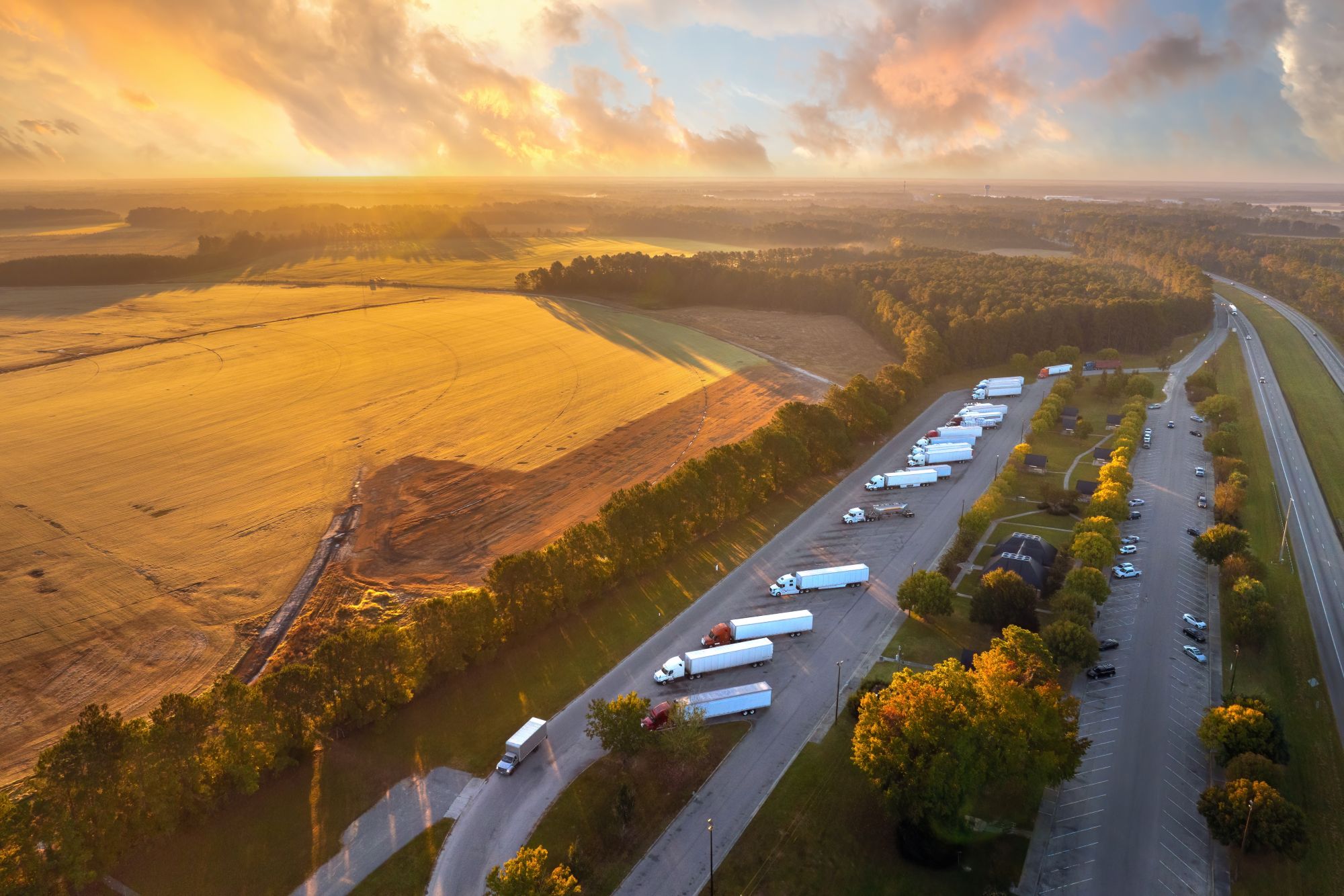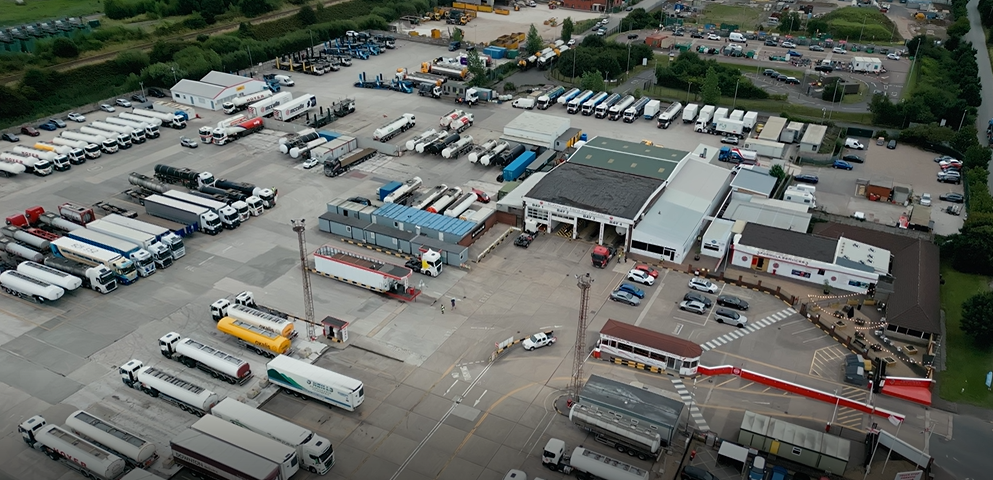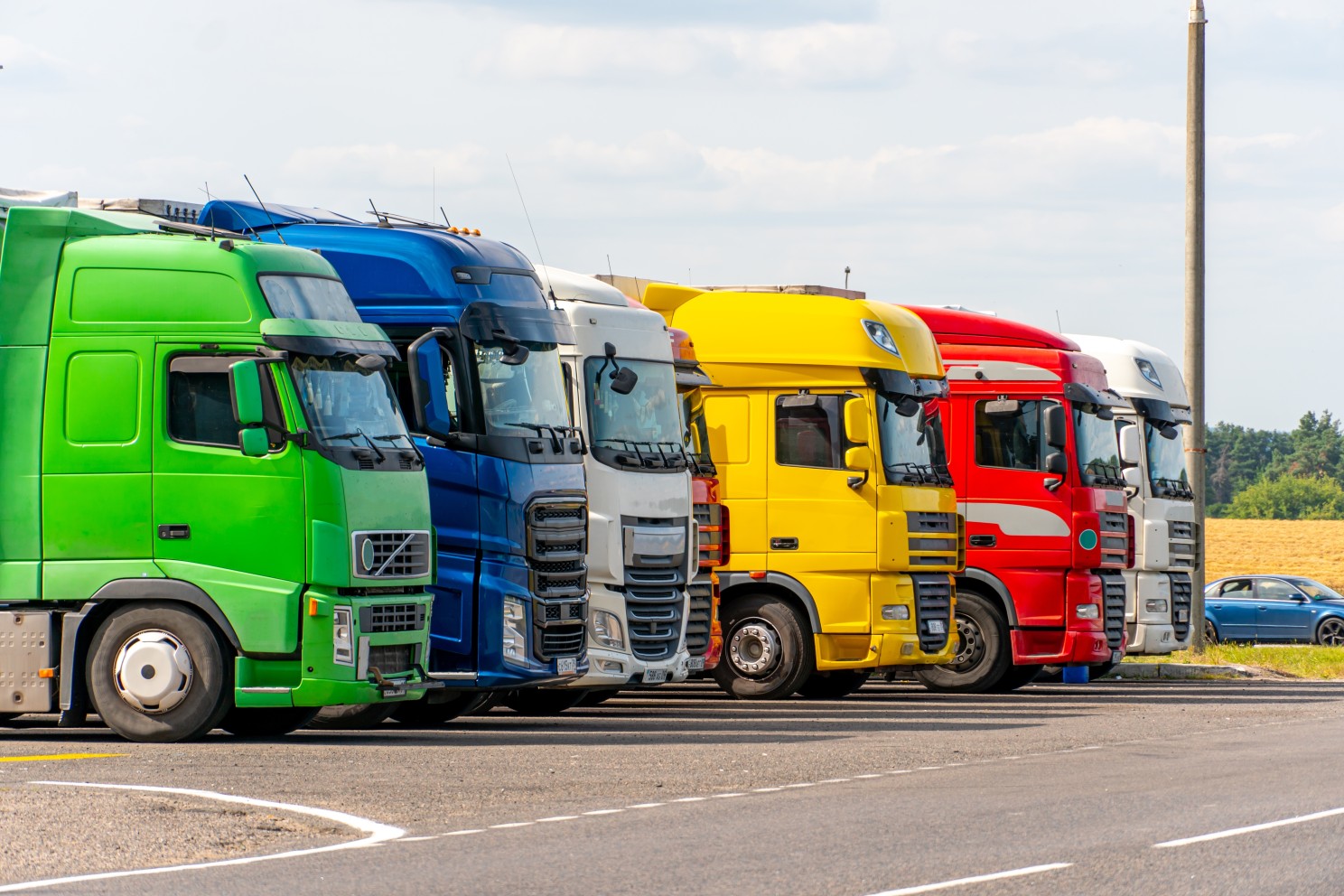
Susie Jones
Kamionos történetek: történetek a nyílt útról
Létrehozva: 22. 08. 2024
•
Frissítve: 22. 08. 2024
Szeretnénk rávilágítani a kamionos közösségre, és megismerni a volán mögött ülő embereket.
A teherautójuk előtt landoló helikopterektől kezdve az autópálya rossz oldalán közlekedő autókig, tudjon meg többet az Ön áruját szállító sofőrökről.
Alan
Alan 23 éve vezet, és Ally Thomson kamionos dalainak meghallgatása után döntött úgy, hogy csatlakozik az iparághoz. Amikor megkérdezték, mit szeret a legjobban a munkában, azt válaszolta, hogy "a teherautó-vezetés magányát - teljesen elszakad az otthoni élettől".
A Volvo teherautók nagy kedvencei, mivel az Amazon árukat szállítva járja az Egyesült Királyságot. Elmondása szerint sok érdekes terméket szállított már, "a választék határtalan - gondoljunk csak bármire, amit az Amazon árul".
Az éjszakára parkoló járművezetők számára nehézséget jelent, hogy az állásidőben is jól szórakozzanak. Az olyan tapasztalt sofőrök, mint Alan azonban tökéletes esti rutint alakítottak ki. Azt állítja, hogy "szereti a Sky TV-t nézni az iPaden keresztül", amikor éjszakára leparkol.
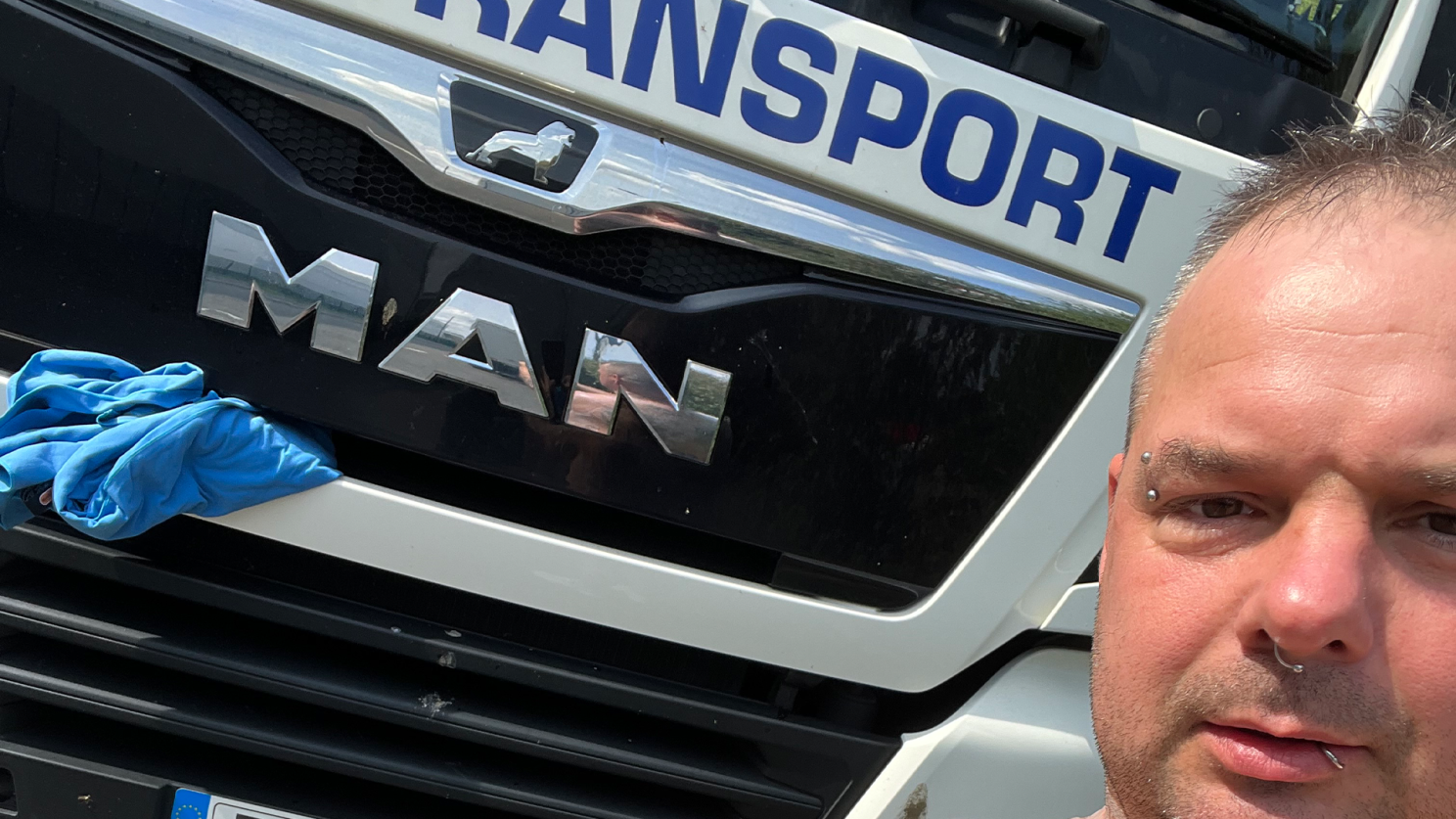
Azoknak a járművezetőknek, akiknek nehézséget okoz, hogy a volán mögött szórakoztassák magukat, összeállítottunk egy listát azokról a módszerekről, amelyekkel megelőzhető az unalom.
Bár a hosszú órák az úton sokak számára monotonnak tűnhetnek, Alan elmagyarázza, hogy mindig van valami, ami őt is izgalomban tartja.
"Azt hiszem, a legőrültebb dolog, amit vezetés közben láttam, egy előttem leszálló helikopter volt" - magyarázza -, ami messze áll attól a monoton hírnévtől, amely évtizedek óta beárnyékolja az iparágat.
Az iparágban eltöltött 23 évével a háta mögött Alan néhány olyan tanácsot adott, amelyek segítségével a gyöngyházfényű fogak frissek maradnak az utazások során.
Elmagyarázza: "A tanács, amit bárkinek adnék, aki új az iparágban, hogy mindig emlékezzenek arra, hogy a fogkefét mindig feltöltve tartsák".
Richard
Richard 36 évvel ezelőtt kezdte karrierjét a fuvarozóiparban, és soha nem nézett vissza. Akkor kapta el a vezetés bogarát, amikor csatlakozott két idősebb testvéréhez, hogy segítsen árukat szállítani az Egyesült Királyságban.
"Imádom, hogy felpakolok és elindulok. Én döntöm el, mikor tartok szünetet és hol parkolok. Nagyszerű dolog úton lenni és bejárni az egész Egyesült Királyságot" - magyarázza.
Pályafutása során az élet az utakon az olaszországi Milánóba is elvitte - ez még a legtapasztaltabb sofőrök számára is kimerítő utazás. Amikor arról kérdezték, hogyan szórakoztatja magát utazásai során, így válaszolt: "Szeretek zenét hallgatni és filmeket nézni a szabadidőmben".
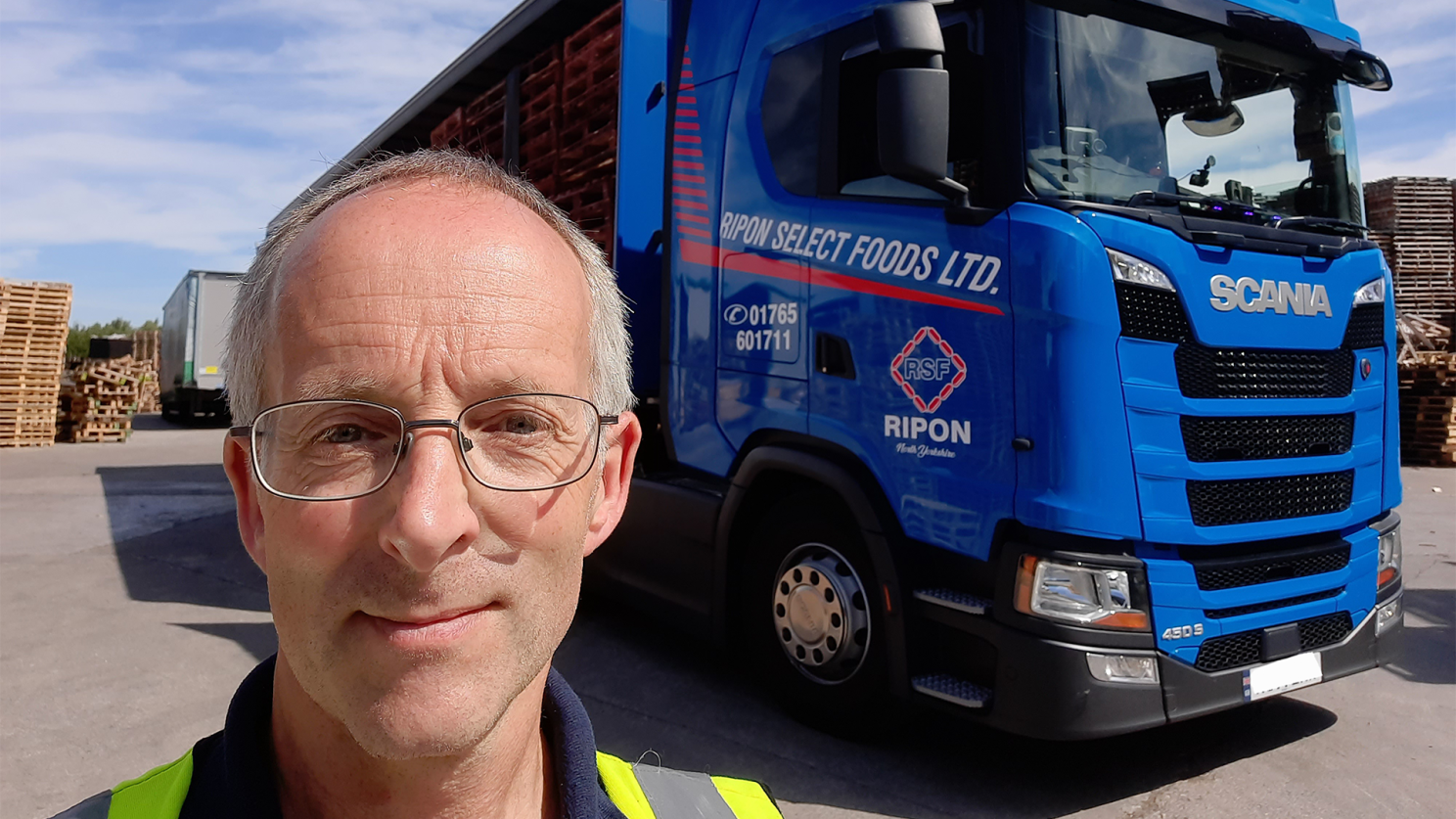
A legjobb teherautó ehhez? "Egy Scania Next Generation 450S-nek kell lennie" - mondja.
Richard számára az iparágban eltöltött 30 év nem múlt el őrült történetek és szokatlan szállítmányok nélkül: "Láttam már autót, amelyik rossz irányban haladt felfelé az autópályán, egy felhajtóról lefelé jövet. A legérdekesebb dolog, amit a teherautó hátuljában szállítottam, egy Szent Wilfred-napi felvonulási kocsi volt."
Bár még mindig szereti a nyílt utakat, Richard azt állítja, hogy ennek néha ára van. Nagyszerű betekintést nyújt a szakma valóságába, és tanácsokat ad azoknak, akik az iparágba szeretnének bekapcsolódni.
"Gondolja meg nagyon alaposan, hogy ez a megfelelő karrier-e az ön számára. Számítson hosszú munkaidőre és arra, hogy sok mindent kihagy a családi életből."
Sean
Mivel sofőrcsaládban nőtt fel, a teherautózás Sean vérében volt, és 20 évvel ezelőtt beült a volán mögé, és a fuvarozóiparban kezdte meg karrierjét.
A munka számos előnnyel jár, de Sean számára a munka nyújtotta szabadság az, amit a legjobban szeret. Ez a szabadság egészen Skóciáig elvitte őt egy hathetes szolgálatra. Ezeken a hosszú utakon a barátokkal való telefonálás és a tévénézés jelenti számára a szórakozást.
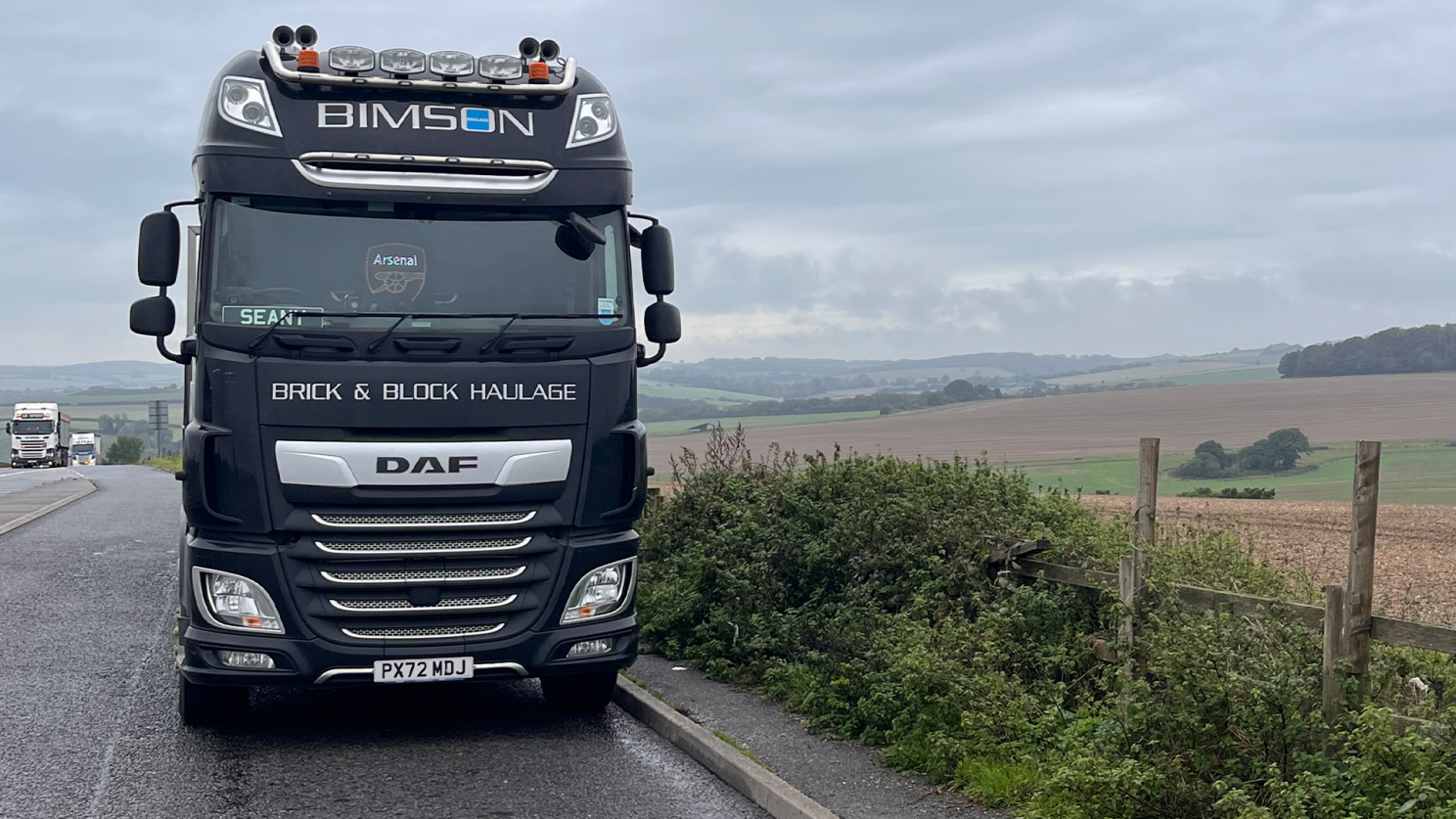
Emellett a kamionmegállók kulcsfontosságú szerepet játszottak Sean számára a vezetés okozta elszigeteltség leküzdésében. A gyakran nyüzsgő kamionmegállók lehetővé teszik Sean számára, hogy útközben találkozzon a barátaival.
Ezek a boxkiállások tökéletes lehetőséget nyújtanak arra, hogy őrült történeteket hallgassunk meg más teherautó-vezetőktől. Richardhoz hasonlóan Sean is a legfurcsább dolog, amit utazásai során látott, "egy autó, amelyik rossz irányba hajtott fel az autópályán a sötétben" - ez a történet túlságosan gyakori a kamionosok körében.
Sean egy DAF XF 530-as teherautót választott az építőanyagok szállításához az Egyesült Királyságban. Azt tanácsolja mindenkinek, aki teherautó-karrierre vágyik, hogy "csak rajta!".
Dave
Dave 30 éve vezet teherautókat, és eljutott Dániáig és Spanyolországig. Amikor éppen nem kedvenc teherautójával, egy Volvo FH-val utazik, akkor a vezetőfülkében kényelmesen nézi a szappanoperákat.
"Néhány autós viselkedése őrült történetekkel ajándékozott meg" - magyarázza. Amikor azonban arról kérdeztük Dave-et, hogy mi volt a legérdekesebb dolog, amit a teherautója hátsó ülésén megélt, továbbra is szűkszavúan nyilatkozik - "ez szigorúan titkos" - állítja.
30 év áruszállítás után Dave megtanult néhány dolgot a fuvarozás világáról. Nagyszerű tanácsot ad azoknak, akik az iparágban akarják elindítani karrierjüket: "győződjenek meg róla, hogy valamire specializálódtak".
Alastair
Alastair viszonylag új az iparágban, és úgy döntött, hogy a teherautó-vezetői karrier mellett dönt, hogy nyugdíjazása után is elfoglalja magát. Öt évnyi tapasztalattal a háta mögött mindennél jobban élvezi a szakma változatosságát.
Ez idő alatt Alastair beutazta az Egyesült Királyságot és Európát: "Jártam Invernessben, Koppenhágában, Lisszabonban, Budapesten és Rómában" - mondja.
Az unalom elűzése érdekében Alastair szívesen hallgatja a "Radio 4-et, az LBC-t és az 5 Live-t".
Európát beutazva tanúja volt a többi közlekedő szokatlan viselkedésének. A legközelebbi eset azonban az volt, amikor teherautóját a "londoni tüntetéseken" kellett átmanővereznie. Valószínűleg ez volt a legőrültebb dolog, amit valaha tapasztaltam" - magyarázza.
A 007-rajongók számára Alastair megosztja, hogy milyen volt, amikor néhány szigorúan titkos tárgyat kellett szállítania.
"A legérdekesebb tárgy, ami a teherautó hátuljában volt, valószínűleg James Bond kiállítási tárgyak voltak" - állítja.
Bár Alastair még nem régóta van ebben az iparágban, van néhány szava azokhoz, akik újak az iparágban.
"Azt tanácsolnám azoknak, akik a fuvarozás világába való belépésen gondolkodnak, hogy maradjanak nyugodtak."
Sean V
Sean szeretete az utak iránt az apjával töltött nyári szünetekre nyúlik vissza, amikor az apja teherautóján utazott. 30 évnyi vezetés után a vezetés iránti szeretete továbbra is erősödik.
"A munkámban azt szeretem, hogy az Egyesült Királyság és Európa minden szép helyét láthatom" - magyarázza. Ez a munka számos helyre elvitte már - Róma a legtávolabbi, ahová eljutott.
Amikor éppen nem a városokat fedezi fel, Sean tévénézéssel, iPad használatával, és egészen mostanáig a saját kabinja kényelmében játszva szereti szórakoztatni magát.
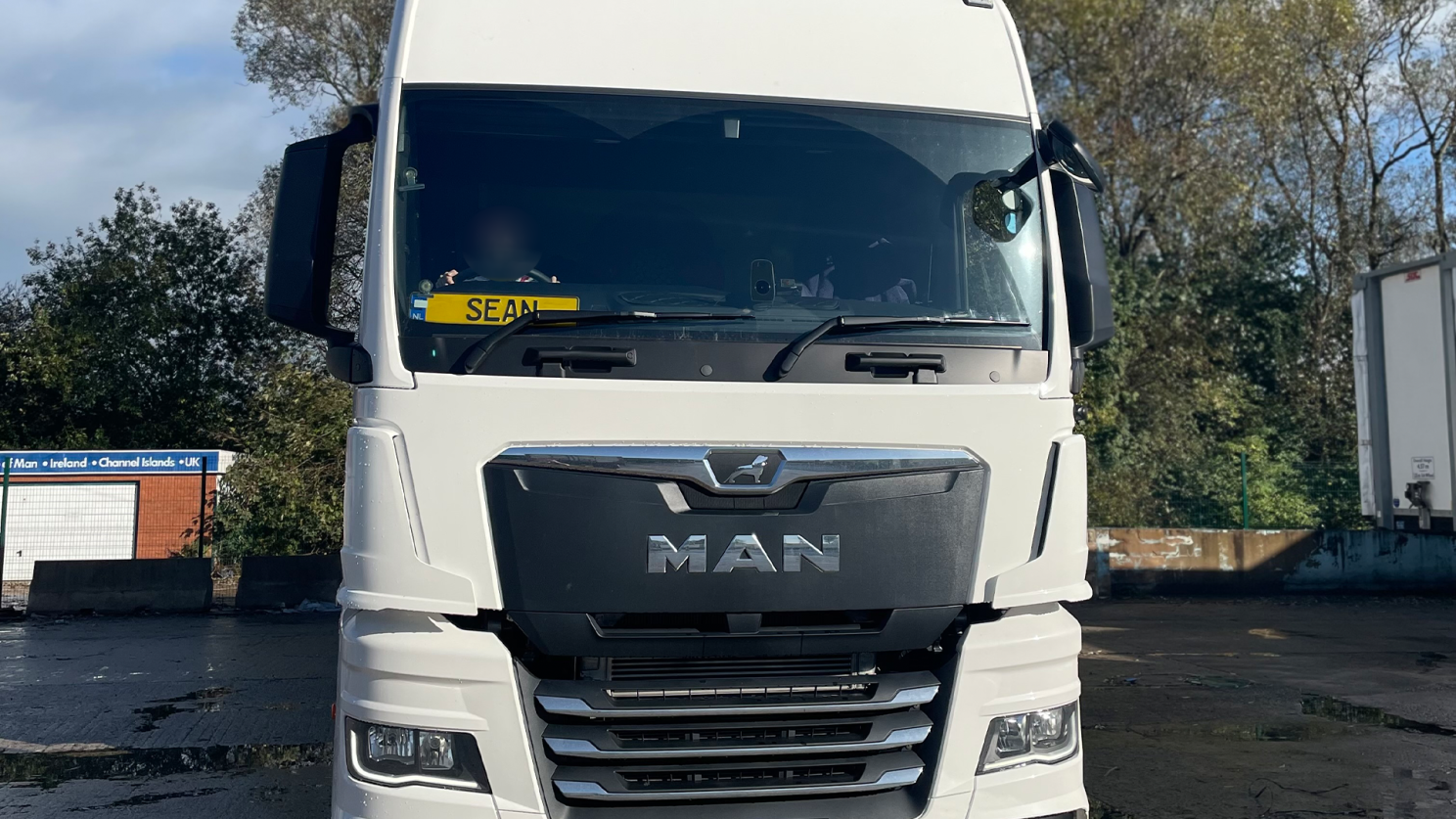
A legőrültebb dolog, aminek tanúja volt az úton?
Sajnos Sean egy másik, hogy szemtanúja legyen egy olyan látványnak, amely túlságosan is gyakori a teherautó-vezetők körében - "egy autó, amelyik rossz irányba halad az autópályán" - magyarázza.
Sean 30 éves pályafutása során azt állítja, hogy a DAF teherautókat vezette a legszívesebben, és a legérdekesebb tétel, amit szállított, a "speciális orvosi felszerelés" volt.
Sean szeretete az iparág iránt felülmúlja a munka néhány negatív aspektusát. Azoknak azonban, akik a fuvarozói karrierjüket a fuvarozóiparban szeretnék beindítani, ezeket a bölcs szavakat ajánlja:
"Ha azon gondolkodik, hogy csatlakozik az iparághoz, számoljon azzal, hogy hosszú órákat fog dolgozni."
Iratkozzon fel a SNAP-ra még ma
A SNAP megkönnyíti az Ön életét azzal, hogy összekapcsolja Önt a közúti fuvarozási szolgáltatások széles hálózatával. Regisztráljon még ma.
